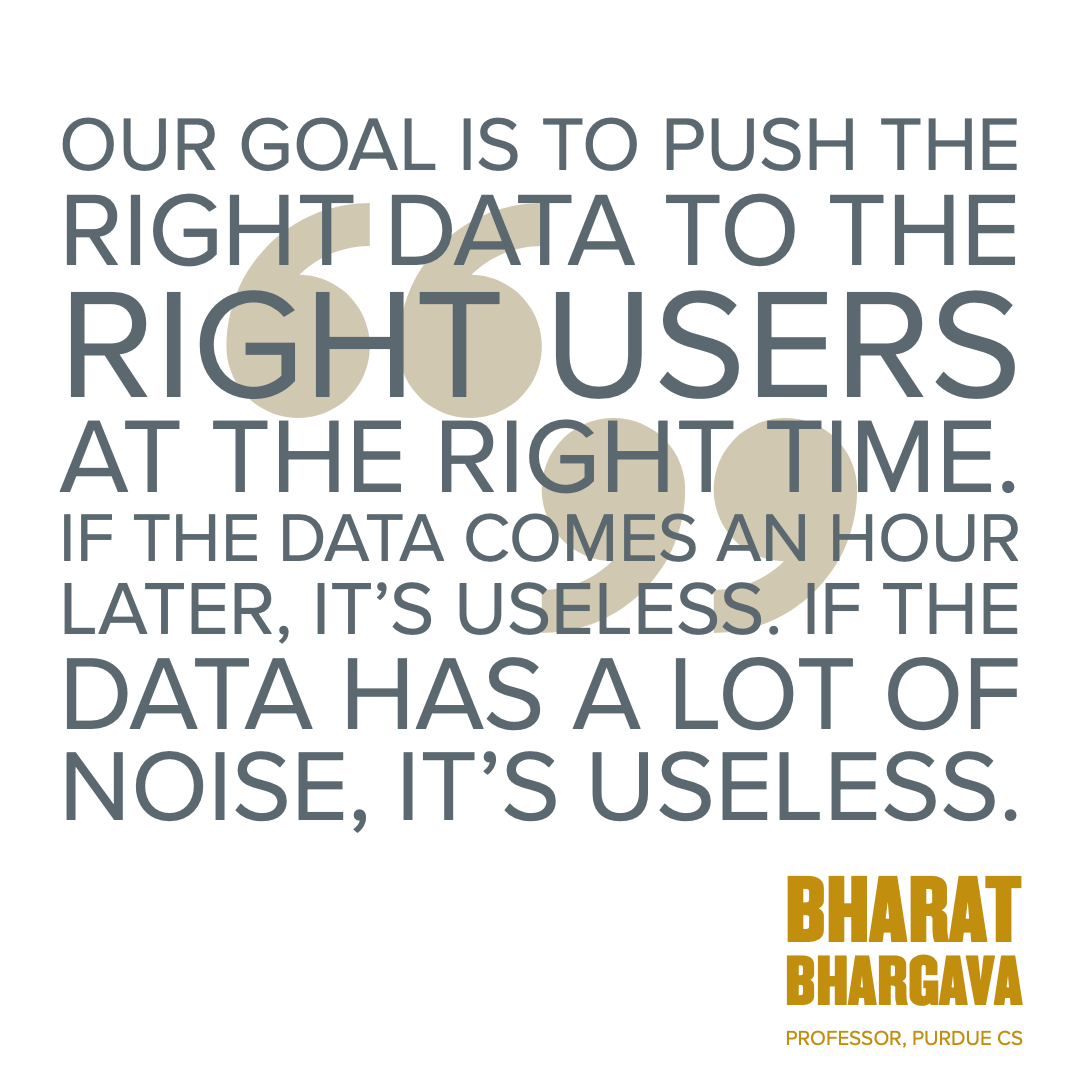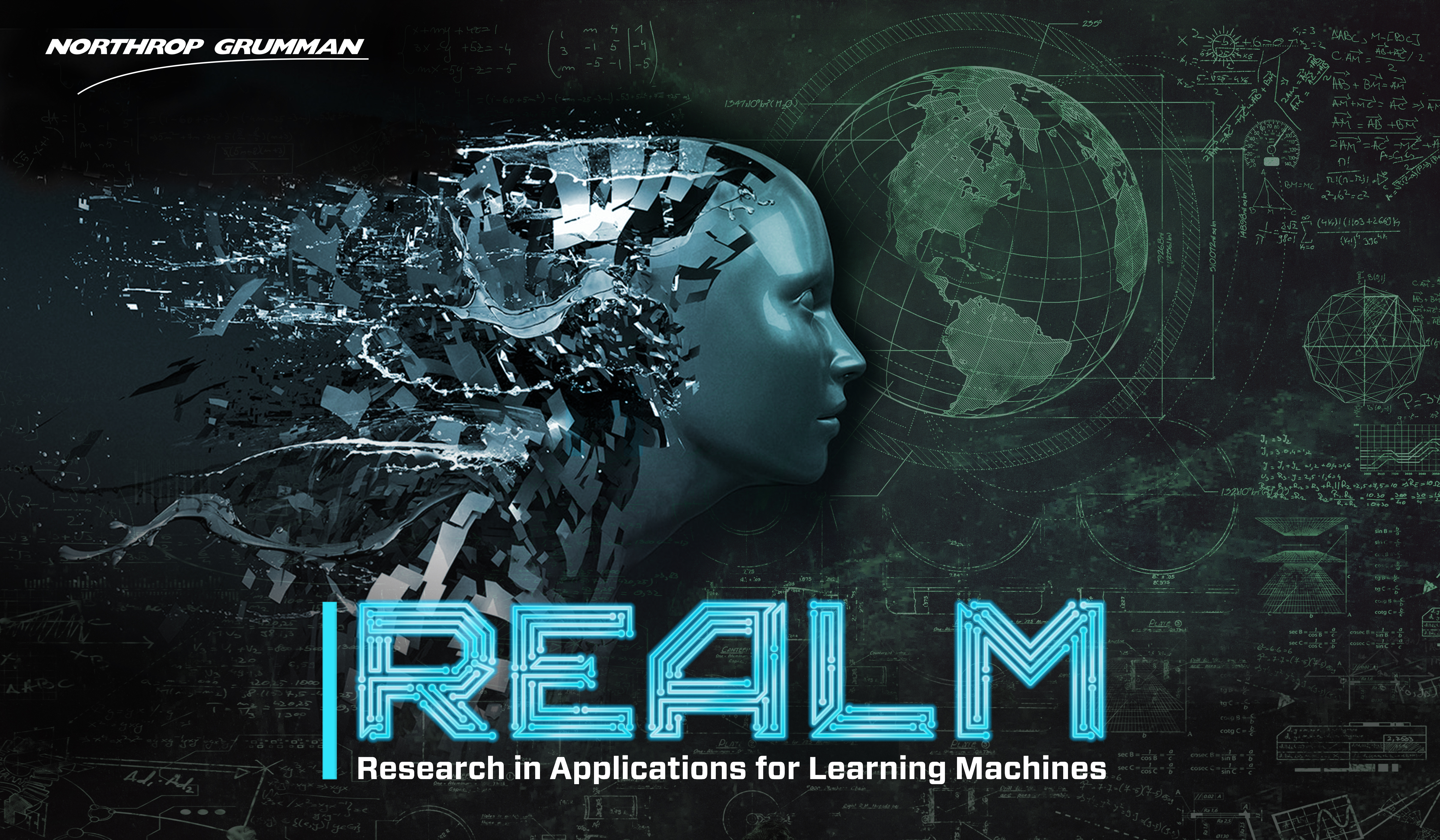The Right Information at the Right Time
05-01-2019

AI project on machine learning wants computers to anticipate what data users want
WEST LAFAYETTE, Ind. — Large flooding across Nebraska this year created a desperate need for relief efforts, with various calls for help and supplies coming in from all across the 77,000-square-mile state.
Professor Bharat Bhargava believes that artificial intelligence, as part of a new research consortium and team project, could assist in such disaster situations, using machine learning and data analysis to coordinate what supplies are needed and where they should go.

“The mission of getting assistance to people is of the utmost concern,” said Bhargava, a professor of computer science.
“Data coming from public tweets, videos, phone calls, and police reports may be noisy, incomplete, incorrect and changing fast,” he said. “Learning machines can analyze multi-model data coming from multiple independent sources and look for needs that are not obvious or explicitly stated.”
Bhargava and his team are working on machine learning through artificial intelligence, allowing computers to decide what information to take in from multiple sources, clean the data, integrate it, label it, and learn from it to identify where it’s needed and disseminate it to the right users.
The goal is for the computers to learn what users are looking for and, as new information comes in, anticipate what users will want and push it out to them – even before the users are aware the data exists.
 The project team is one of three to share in three years of funding totaling more than $1.2 million from Northrop Grumman Corp. as part of the Research in Applications of Learning Machines (REALM) consortium.
The project team is one of three to share in three years of funding totaling more than $1.2 million from Northrop Grumman Corp. as part of the Research in Applications of Learning Machines (REALM) consortium.
“Our goal is to push the right data to the right users at the right time,” he said. “If the data comes an hour later, it’s useless. If the data has a lot of noise, it’s useless. That the total object of this.”
Bhargava said machine learning through artificial intelligence could be used in a variety of ad hoc situations, ranging from informing police of changes in traffic patterns due to accidents to supporting various branches of the military looking for the smallest details regarding missions.
In addition to online information, the machine learning system takes in data from sensors, signals or drones and “cleans” it so it can be understood by users.
As users request information, the computer fills the request. Using algorithms, the system is expected to continually learn the type of data the user wants so that in the future, as pertinent information is received, it can automatically be sent to the appropriate user without receiving a formal request.
“It’s learning what the user is looking for before they even know about it,” Bhargava said. “As the data is changing, we want the machine to learn and determine which are new, novel pieces of information that are unexpected but can be very valuable to the user.”
The data will be filtered based on privacy policy and context before it is sent. Feedback is given by the user afterward so the system can determine the parameters for future data to be sent out.
Bhargava is joined on the project by faculty from Stanford University, Massachusetts Institute of Technology and Carnegie Mellon University.
The work aligns with Purdue's Giant Leaps celebration, acknowledging the university’s global advancements made in artificial intelligence as part of Purdue’s 150th anniversary. This is one of the four themes of the yearlong celebration’s Ideas Festival, designed to showcase Purdue as an intellectual center solving real-world issues.
Writer: Brian Huchel, 765-494-2084, bhuchel@purdue.edu
Source: Bharat Bhargava, 765-494-6013, bbshail@purdue.edu